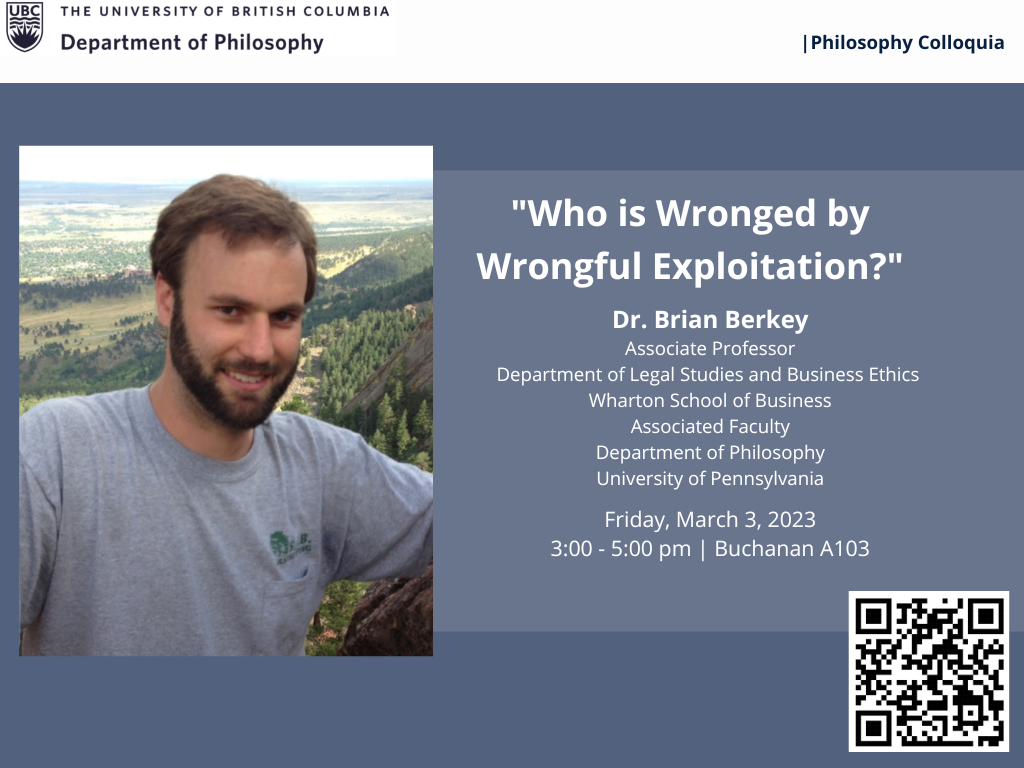

The Department of Philosophy is pleased to invite you to our 2022/2023 colloquium series.
Our guest speaker Dr. Brian Berkey, Associate Professor of Legal Studies and Business Ethics and of Philosophy at the University of Pennsylvania will give a talk on “Who is Wronged by Wrongful Exploitation?” on March 3.
Brian works in moral and political philosophy (including business ethics and environmental ethics). He has written on issues such as the demandingness of morality, individual and corporate obligations of justice, ethical issues arising with regard to climate change, exploitation, effective altruism, animal ethics, collective obligations, ethical consumerism, and the relationship between ideal and non-ideal theory. He is also interested in methodological issues in ethics and political philosophy, including the appropriate role of appeals to intuitions. His work has appeared in journals such as Philosophy & Public Affairs, Mind, Philosophical Studies, Canadian Journal of Philosophy, Utilitas, Business Ethics Quarterly, Journal of Business Ethics, and Journal of Applied Philosophy.
Title: “Who is Wronged by Wrongful Exploitation?”
Abstract: Most accounts of what makes exploitation impermissible imply that it’s necessarily a narrowly directed wrong. Specifically, these accounts suggest that only those who are the vulnerable parties to exploitative transactions can be wronged.
There’s much that is intuitively appealing about this view. In this paper, however, I argue that there are strong reasons to think that in some cases of wrongful exploitation the wrong is not narrowly directed. Specifically, I claim that reflecting on the broader context within which many of the paradigm cases of wrongful exploitation occurs suggests that exploitation often wrongs a broader class of agents than those who are taken advantage of within particular transactions.
I argue that once we focus on the fact that in many cases a large number of people attempted to become parties to the transactions, but were refused, it looks more puzzling to hold that those who were selected are uniquely wronged.
I note some central differences between my view and views on which the wrong is narrowly directed, and highlight what I take to be some important implications of my view, in particular with regard to the remedial duties of parties guilty of wrongful exploitation.